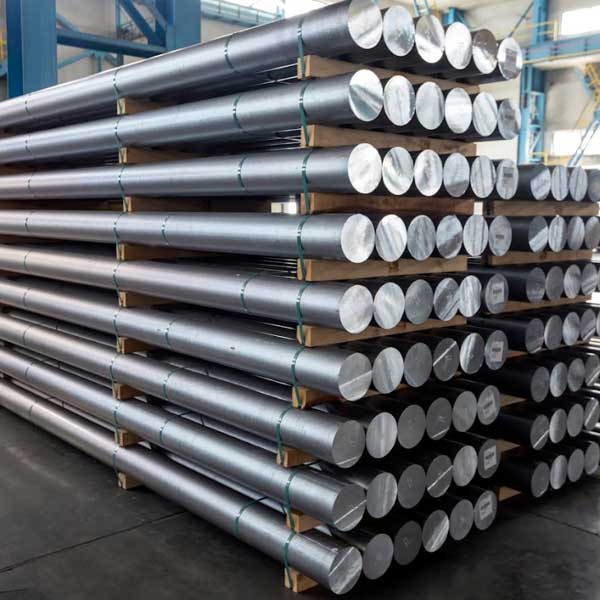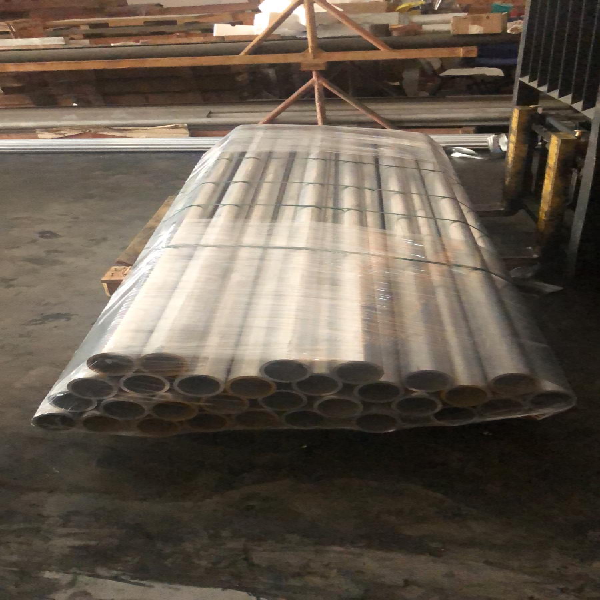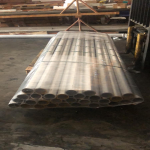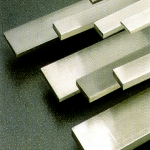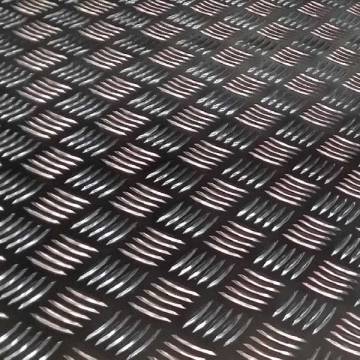Aluminium
7075
Aluminum 7075 is a high-strength alloy with exceptional mechanical properties, making it highly valuable in aerospace, automotive, sporting goods, structural, defense, and tooling applications.
Specifications
- 7075
Summary
- Used in transport applications, including marine, automotive and aviation, due to their high strength-to-density ratio
- Rock climbing equipment
- Bicycle components
- Inlineskating-frames
- Hang glider airframes
- Greyish-white in colour, it is malleable, ductile and conductive to heat and electricity
- A thin inert film of oxide protects the metal surface from further attack, thus giving the metal a form of resistance to corrosion.
- This film of oxide can be further thickened by a process known as the anodizing
- Welding can be made possible.
- Anodized or spray coating possible to achieve different architectural effects
- With its non-corrosive and good mechanical properties, each grade of Aluminium has a high range of applications.
- Aluminium also possesses very high malleability, enabling it to be produced into a very thin foil.
Introduction:
Aluminum 7075 is a high-strength alloy known for its exceptional mechanical properties, including strength, toughness, and fatigue resistance. Composed primarily of aluminum (Al) with zinc (Zn), magnesium (Mg), and copper (Cu) as the primary alloying elements, aluminum 7075 offers a unique set of characteristics that make it highly valuable in aerospace, automotive, and structural applications where high strength-to-weight ratio is essential. Here's a detailed write-up on aluminum 7075:
Composition:
Aluminum 7075 is part of the 7xxx series of aluminum alloys. Its typical composition includes:
- Aluminum (Al): 87.1-91.4%
- Zinc (Zn): 5.1-6.1%
- Magnesium (Mg): 2.1-2.9%
- Copper (Cu): 1.2-2.0%
- Chromium (Cr): ≤0.18%
- Iron (Fe): ≤0.50%
- Silicon (Si): ≤0.40%
- Manganese (Mn): ≤0.30%
- Titanium (Ti): ≤0.20%
- Other elements: ≤0.05% each, ≤0.15% total
The precise composition may vary slightly depending on specific manufacturing requirements and standards.
Properties:
- High Strength: Aluminum 7075 offers exceptional strength-to-weight ratio, making it one of the highest-strength aluminum alloys available. It exhibits high tensile strength and yield strength, providing reliable performance in structural and load-bearing applications.
- Toughness: Aluminum 7075 possesses good toughness and fracture resistance, even at low temperatures. It withstands impact and shock loads without undergoing brittle failure, making it suitable for applications requiring durability and reliability.
- Fatigue Resistance: Aluminum 7075 has excellent fatigue resistance, allowing it to endure repeated loading cycles without experiencing fatigue failure. It is commonly used in aerospace and automotive components subjected to cyclic loading and stress.
- Corrosion Resistance: Aluminum 7075 offers moderate corrosion resistance in natural and industrial environments. While it is not as corrosion-resistant as some other aluminum alloys, it can be protected through surface treatments such as anodizing or coatings.
- Machinability: Aluminum 7075 has fair machinability, requiring specialized machining techniques and tools due to its high strength and hardness. It produces clean and smooth surfaces with proper machining practices, making it suitable for precision machining and fabrication.
- Weldability: Aluminum 7075 is generally considered weldable using standard welding techniques, such as gas tungsten arc welding (GTAW) and gas metal arc welding (GMAW). However, precautions should be taken to avoid cracking and porosity, and post-weld heat treatment may be necessary to restore properties.
Applications:
- Aerospace Components: Aluminum 7075 is widely used in the aerospace industry for manufacturing aircraft structures, fuselage panels, wing components, and engine parts. Its high strength-to-weight ratio and fatigue resistance contribute to the performance and reliability of aerospace vehicles.
- Automotive Parts: Aluminum 7075 finds applications in the automotive industry for producing high-performance components such as wheels, suspension parts, chassis components, and engine mounts. Its lightweight and high strength properties contribute to fuel efficiency and performance in automotive vehicles.
- Sporting Goods: Aluminum 7075 is employed in the production of sporting goods and equipment such as bicycle frames, baseball bats, ski poles, and firearm components. Its high strength-to-weight ratio and toughness make it ideal for applications requiring durability and performance.
- Structural Applications: Aluminum 7075 is utilized in structural applications requiring high strength and toughness, such as bridges, buildings, and infrastructure projects. It provides structural integrity and reliability in load-bearing structures subjected to dynamic loads and stress.
- Defense and Military: Aluminum 7075 finds applications in defense and military equipment such as armored vehicles, military aircraft, and weapon systems. Its high strength, toughness, and fatigue resistance make it suitable for protecting personnel and equipment in demanding environments.
- Tooling and Machinery: Aluminum 7075 is used in tooling and machinery applications for producing molds, dies, and machine components requiring high strength and durability. It provides reliable performance in manufacturing processes subjected to heavy loads and wear.
Conclusion:
Aluminum 7075 is a high-strength alloy with exceptional mechanical properties, making it highly valuable in aerospace, automotive, sporting goods, structural, defense, and tooling applications. Its unique combination of strength, toughness, fatigue resistance, and lightweight properties make it indispensable in industries requiring materials capable of withstanding high loads and stresses. Whether in aerospace structures, automotive components, sporting equipment, or structural applications, aluminum 7075 continues to demonstrate its value as a reliable and effective material choice.
Share

